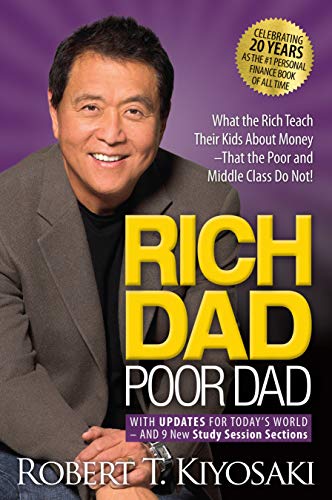Unleashing Financial Wisdom: Insights from “Rich Dad Poor Dad”

“Rich Dad Poor Dad,” penned by Robert T. Kiyosaki, transcends mere financial advice—it’s a mindset shift. The book juxtaposes two father figures: the “Poor Dad,” representing conventional wisdom, and the “Rich Dad,” an unconventional mentor. Through their contrasting beliefs, Kiyosaki imparts invaluable lessons on wealth creation, financial independence, and personal growth.
Key Lessons
- Escape the Rat Race: The Rich Don’t Work for Money
- The wealthy prioritize assets over earned income.
- Passive income streams (like investments or real estate) pave the way to financial freedom.
- Financial Literacy: The Missing Link
- Schools teach algebra but not financial literacy.
- Learn about money management, investing, and entrepreneurship.
- Mind Your Business: Assets and Liabilities
- Treat your finances like a business.
- Understand cash flow, assets (which put money in your pocket), and liabilities (which take money out).
- Tax Strategies and Corporate Power
- Corporations offer tax advantages.
- Learn to leverage legal structures to minimize taxes.
- Invent Your Wealth: Creativity and Innovation
- The rich invent money through ideas, businesses, and investments.
- Break free from the paycheck-to-paycheck cycle.
- Work to Learn: Invest in Yourself
- Prioritize learning over immediate income.
- Acquire skills, knowledge, and experience.
Additional Insights
- Financial Illiteracy: Many educated individuals lack financial literacy.
- Cash Flow: It reveals your financial health.
- Being Different: Dare to think differently; seek unconventional paths.
- Keeping Up with the Joneses: Focus on income-generating assets, not status symbols.
Conclusion
“Rich Dad Poor Dad” isn’t just a book; it’s a blueprint for financial empowerment. Embrace these principles, and you’ll not only build wealth but also transform your mindset. Remember, financial education is a lifelong journey—keep learning, growing, and thriving!




















